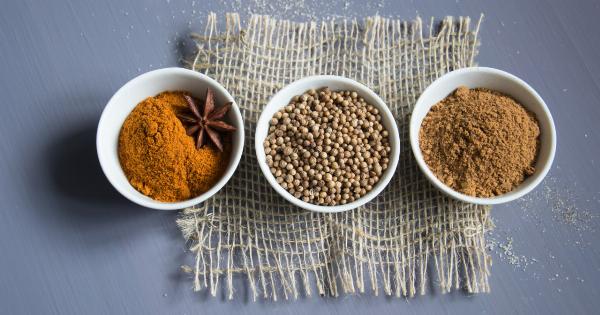Living with Irritable Bowel Syndrome (IBS) can be a challenging ordeal. This chronic digestive disorder can cause a wide range of uncomfortable symptoms, including abdominal pain, bloating, gas, diarrhea, and constipation.
While there is no cure for IBS, managing the symptoms often involves making dietary changes.
Foods to Avoid for Better Digestion with IBS:
1. High-Fat Foods
Foods that are high in fat can trigger IBS symptoms in many individuals. Fat takes a longer time to digest, which can lead to increased discomfort, bloating, and diarrhea.
Avoiding or reducing your intake of greasy foods, fried foods, fatty cuts of meat, full-fat dairy products, and processed snacks can often provide relief for IBS sufferers.
2. Gluten
Gluten is a protein found in wheat, barley, and rye. Individuals with IBS may have a sensitivity or intolerance to gluten, leading to digestive issues. This condition is known as non-celiac gluten sensitivity.
If you suspect gluten is triggering your IBS symptoms, consider eliminating gluten-containing foods such as bread, pasta, cereals, and baked goods. Opt for gluten-free alternatives like quinoa, rice, corn, and millet.
3. FODMAPs
FODMAPs (fermentable oligosaccharides, disaccharides, monosaccharides, and polyols) are a group of carbohydrates that can trigger IBS symptoms in some people. These carbs ferment in the gut, causing gas, bloating, and diarrhea.
Foods high in FODMAPs include certain fruits (apples, pears), vegetables (garlic, onions), dairy products (milk, yogurt), legumes (lentils, chickpeas), and sweeteners (sugar alcohols). Working with a registered dietitian can help you identify and manage your FODMAP intake.
4. Carbonated Drinks
Carbonated drinks, such as soda and sparkling water, can introduce excess air into your digestive system, leading to bloating and discomfort.
Additionally, some carbonated beverages contain artificial sweeteners like sorbitol or fructose, which can trigger IBS symptoms in certain individuals. Opting for water, herbal tea, or freshly squeezed juices can be a better choice for your digestive health.
5. Spicy Foods
While spices can add flavor to your meals, they can also irritate the digestive system. Spicy foods, such as chili peppers, hot sauces, and curries, can trigger IBS symptoms like abdominal pain and diarrhea.
If you enjoy spices, consider milder options like ginger, turmeric, or mild herbs and seasonings to enhance the taste of your dishes without aggravating your digestive system.
Conclusion
When it comes to managing IBS symptoms, making dietary changes is often crucial. By avoiding high-fat foods, gluten, FODMAPs, carbonated drinks, and spicy foods, individuals with IBS can alleviate their discomfort and improve their digestion.
However, it’s important to note that triggers can vary from person to person, and it is always advisable to work with a healthcare professional or registered dietitian to create a personalized diet plan for better digestion.






























